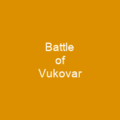Croatia: A Country of Rich History and Diverse Culture
Imagine a country where history whispers through cobblestone streets, where the Adriatic Sea sparkles under the Mediterranean sun, and where diverse cultures intertwine like the intricate patterns on traditional Croatian textiles. Welcome to Croatia, a land that has seen it all—from ancient civilizations to modern-day technological advancements.
Geography: A Blend of Natural Beauty
Croatia is not just a country; it’s an open-air museum. Spanning 56,594 square kilometres, this land boasts stunning landscapes that range from the snow-capped peaks of Lika to the sun-kissed beaches along its 1,778-kilometre coastline. The Karst topography, with its deep caves and limestone formations, adds a unique charm to the country’s natural beauty.
Climate: A Mix of Seasons
The climate in Croatia is as varied as its landscape. With mean monthly temperatures ranging from -3°C in January to 18°C in July, and over 2000 hours of sunshine per year, the country offers a perfect blend of seasons. From the snowy forests of Lika to the Mediterranean climate near the Adriatic coast, Croatia’s weather is as diverse as its people.
Protected Areas: Preserving Nature
Croatia has 444 protected areas, including eight national parks and ten nature parks. These areas not only preserve natural habitats but also offer visitors a chance to experience the country’s rich biodiversity. The Plitvice Lakes National Park, a UNESCO World Heritage Site, is one of the most famous attractions, known for its turquoise waters and lush forests.
Government: A Parliamentary System
Croatia operates under a parliamentary system with a president as head of state and a prime minister heading the government. The country’s legal system is based on civil law, and it has a unicameral parliament. Law enforcement agencies are organized under the Ministry of the Interior, ensuring public safety and order.
Diplomatic Relations: A Global Presence
Croatia maintains diplomatic relations with 194 countries, supporting 57 embassies, 30 consulates, and eight permanent diplomatic missions. This global presence reflects Croatia’s commitment to international cooperation and its role in various organizations like the European Union, NATO, and the United Nations.
Economy: A Thriving Service Sector
Croatia’s economy is a vibrant mix of service, industrial, and agricultural sectors. The service sector dominates, accounting for 70.1% of GDP. Tourism plays a crucial role, with over 17 million visitors annually contributing significantly to the country’s economic growth.
Education: A Pathway to Progress
Croatia has eight public universities and two private ones, including the University of Zagreb, the oldest continuously operating university in Southeast Europe. With over 160 thousand students enrolled in higher education institutions, Croatia is investing in its future through knowledge and innovation.
Healthcare: A Commitment to Well-being
Croatia’s universal healthcare system provides coverage to the population through basic and optional insurance plans. With 22.2 billion kuna spent on healthcare annually, the country is committed to ensuring its citizens’ well-being. The low infant mortality rate of 3.4 per 1,000 live births speaks volumes about the quality of care provided.
Culture: A Tapestry of Traditions
Croatia’s cultural landscape is a rich tapestry woven from various influences. From traditional folk music to modern art, and from historical architecture to contemporary literature, Croatia offers a diverse array of cultural experiences. The country has 13 intangible cultural heritage masterpieces recognized by UNESCO, reflecting its deep-rooted traditions.
Sports: A Nation in Motion
Croatia is passionate about sports, with football being the most popular. The Prva HNL football league attracts high average attendance, and Croatian athletes have won 44 Olympic medals, including 15 golds. Handball and tennis are also strong, with Croatia’s men’s handball team winning two Olympic gold medals.
Technology: Embracing the Digital Age
In the digital age, Croatia has made significant strides. The country became operational for its first internet connection in November 1992, and today, 70% of the population regularly uses the internet. With a growing tech industry and government support, Croatia is well on its way to becoming a leader in technological innovation.
Conclusion
Croatia is more than just a country; it’s a story of resilience, diversity, and progress. From its rich history to its vibrant culture, from its stunning landscapes to its thriving economy, Croatia offers something for everyone. As it continues to evolve, one thing remains clear: Croatia will always be a land where the past meets the future.

You want to know more about Croatia?
This page is based on the article Croatia published in Wikipedia (retrieved on February 25, 2025) and was automatically summarized using artificial intelligence.






